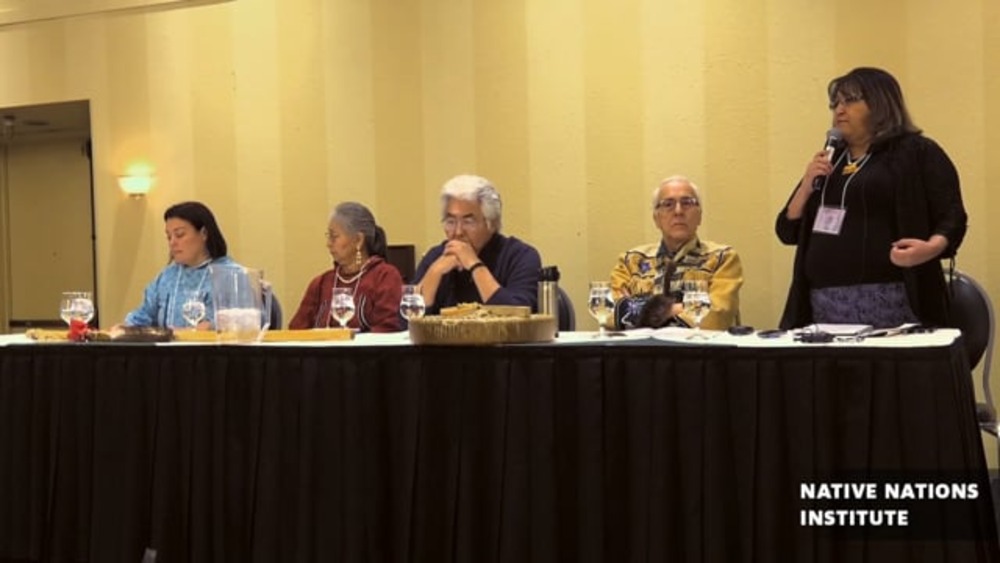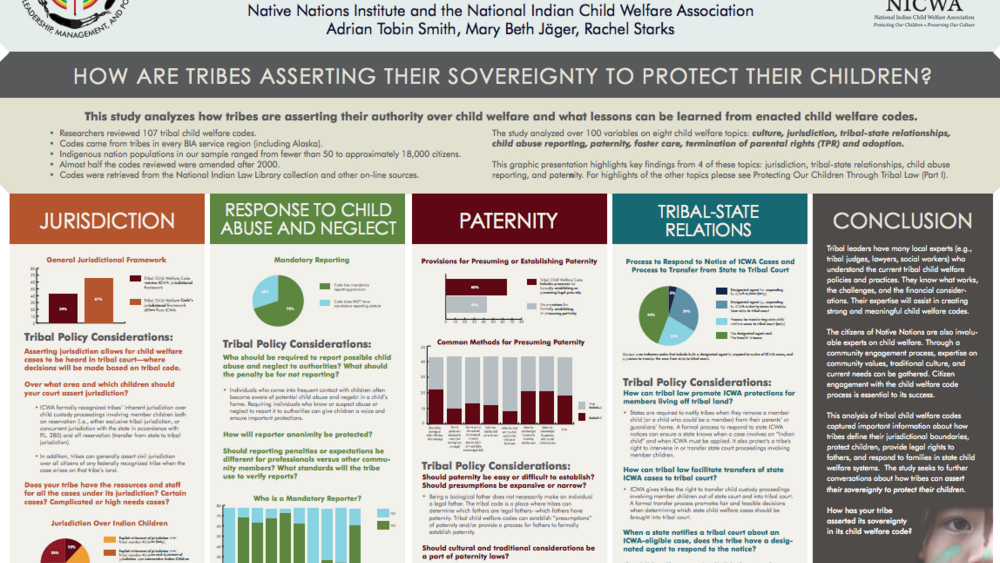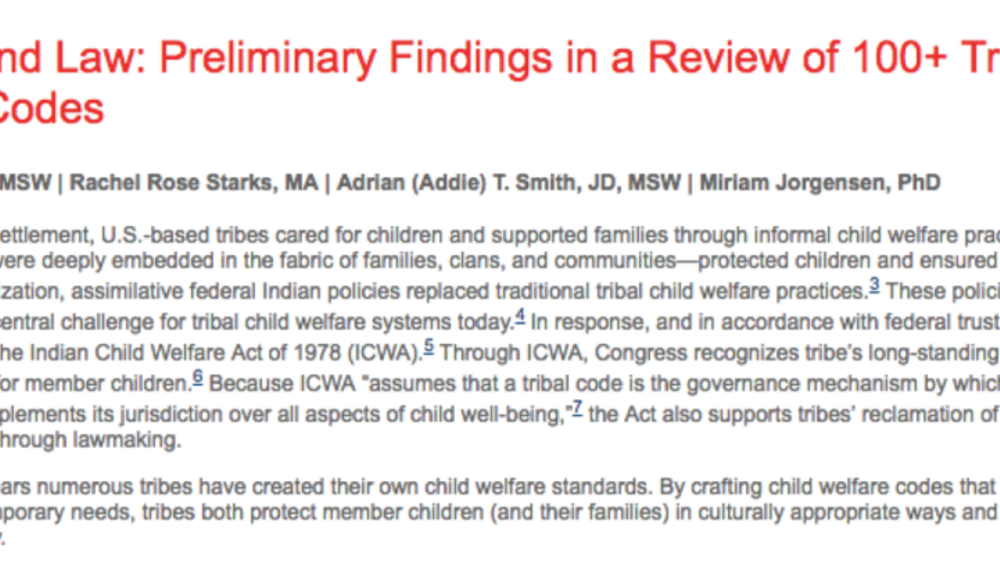The expertise and knowledge about dealing with Alaska and Federal government entities in matters of child welfare are detailed with focus on asserting tribal sovereignty.
Additional Information
Native Nations Institute. "Making the Indian Child Welfare Act Work: The Importance of Tribal Sovereignty." Alaska Tribal Government Symposium. Fairbanks, Alaska. November 15, 2016.
Transcript
Transcript available upon request. Please email: nni@email.arizona.edu



